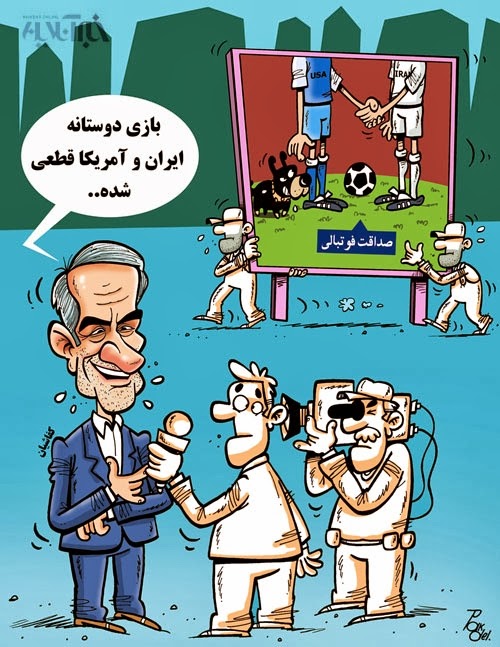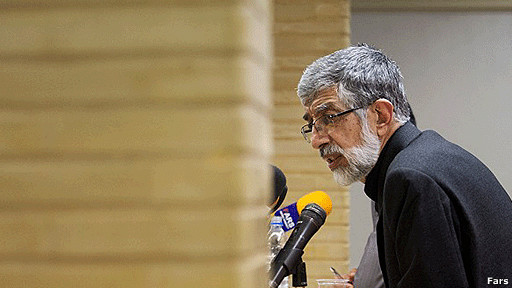!سلام
Today I thought I'd upload a popular Iranian song instead of a grammar lesson or newspaper excerpt. The song is called Ye Dokhtar, and it refers to Neda Agha-Soltan who's death during the 2009 Iranian election protests was widely
chronicled.
They lyrics also mention Iran's Green Party and 2009 reform candidate Mousavi.
Here is a link to the
song. The lyrics, with translation, are below.
یــــه دختــــر تو تــراس روبـرویی
یــه شال سبــــــز و هـر روز میتکونه
یـــه شال سبــــــز و ساده که غروبا
پــــر از خــاکســــتر آتــش فشونــه
پـــــــر از خاکســــــتر آرزوهایــــی
که هر روز روی قلبش گَر میگیرن
پر از خاکســـتر خوابــای خوبــــی
که هرشب تو نگاه اون میمیــــرن
همین چند وقته پیش رویاشـــو توی
خیــابون بـــی بهونه سر بریـــدن
همیــشــــه راه پــــروازشو بسـتن
همیشـــه رو خیالش خـــط کشیـــدن
بـــراش مـــرده و زنــده فرق نداره
سیاست بازا پــیـــرا و جــــوونــــا
همش دنبــــال قهرمـــــان مـیگرده
میونـه شاعــــــرا آوازخــــونـــــا
رو دیــــوار اتـــاقـش چنتــا عکـسه
هدایـت ، کاف کــا ، فرخــزاد ، مایـکل
یــــه عکـــــس خاتــــمی چنتــا مدونا
یه عکس تام کروز یـه عـــکس فیدل
براش مـــــرده و زنــــده فــرق نداره
همش دنبـــــال قهرمــــان میـــگرده
براش مـــــرده و زنــــده فــرق نداره
همش دنبـــــال قهرمــــان میـــگرده
همش دنبـــــال قهرمــــان میـــگرده
نــمیدونه کــه تنـــها تـوی آیــــنه
بایـــد دنبــــال قــهرمــان بــــگرده
هنـــوز بـــاور نـــداره که با دستاش
جهانی میشه ســاخت ، بی ظلم و برده
یــــه دختــــر تو تــراس روبرویـی
شبـــا کنسرت فریـــادش بــه راهــه
صداش میگیره از بـس غصـــه داره
نمیشه دیدش از بـس شــــب سیاهه
ولی زنگ صـداش میـپـچـه هــرشب
تو شـهری که چـراغاش رنگه خــــونن
دیــگه چـــند وقــتـــه که حتـــی چراغِ
چـهـارراه ها میترســن "سبــــــز" بمونن
میـــخواد یـاد تــموم شـــهر بــمونــه
بــهـاری کـه یــکی بــرگـاشـو دزدیــد
درخـتــی کــه قـرنـتـیـنـه شــد آخـــــر
تو فصــلی که زمین بـرعکس میچرخید
صــداش لـــبریز حـــرفـای نـگفتس
سرش لبــریــز صد آتــش فشونــه
یـــه دختــــر تو تــراس روبرویــی
یـه شال سبــــــز و هر روز میتکونه
یـه شال سبــــــز و هر روز میتکونه
یـه شال سبــــــز و هر روز میتکونه
a girl in the opposite terrace
waves a green shawl every day
a green and simple shawl that at sunset
is full of volcanic ashes
full of ashes of the wishes
that burn on her heart daily
full of ashes of the sweet dreams
that die in her eyes every night
not long ago her dreams
were beheaded on streets unduly
her flying route was always blocked
her imagination has always been crossed off
alive or dead is the same for her
politicians, the elderly, or the youth
repeatedly she’s in search of a hero
among the poets or the singers
on her room’s wall are some pictures of
Hedaayat, Kafka, Farokhzad, Michael
one picture of Khatami, some of Madonna’s
a picture of Tom Cruise, one from Fidel
alive or dead is the same for her
repeatedly she’s in search of a hero
she doesn’t know that in the mirror alone
she should quest a hero
she still does not believe that by her hands
a world can be built without tyranny and slaves
a girl in the opposite terrace
has a concert of cries nightly
her voice gets lowered due to many sorrows
the night’s darkness hides her to be seen
but the timbre of her voice is resonated
in a city with lights the same color as the houses
some time later even the traffic lights
at junctions are scared to turn green
she wants to remember the city
the spring whose leaves were stolen
and a tree that finally got quarantined
in a season in which the earth was rotating conversely
her heart full of unsaid words
her head full of hundreds of volcanoes
a girl in the opposite terrace
waves a green shawl every day






















